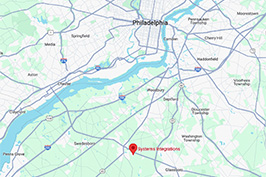The Critical Importance of Security System Life Cycle Management: Why Proactive Hardware Replacement Protects Your Business
In the rapidly evolving world of security technology, one of the most overlooked aspects of maintaining a robust security infrastructure is proper life cycle management. Many businesses operate under the “if it’s not broken, don’t fix it” mentality, but when it comes to security systems, this approach can leave your organization vulnerable to significant risks.
Understanding Security System Life Cycle Management
Life cycle management in security systems refers to the strategic planning and implementation of hardware and software updates, replacements, and upgrades throughout the operational lifespan of your security infrastructure. This includes everything from access control systems and video surveillance equipment to fire detection systems and intrusion alarms.
The Hidden Costs of Outdated Security Hardware
Cybersecurity Vulnerabilities
Older security systems often lack the latest cybersecurity protections, making them prime targets for cyber attacks. Legacy systems may not receive security patches or firmware updates, leaving critical vulnerabilities exposed. With the increasing sophistication of cyber threats, outdated hardware can become the weakest link in your security chain.
Compliance Risks
Many industries are subject to strict regulatory requirements regarding security systems. Outdated hardware may not meet current compliance standards, potentially exposing your business to legal liabilities and regulatory penalties. This is particularly critical for manufacturing facilities and businesses handling sensitive data.
Operational Inefficiencies
Aging security systems often experience increased downtime, slower response times, and reduced reliability. These inefficiencies can impact your daily operations and compromise the overall effectiveness of your security program.
Integration Challenges
Modern security systems are designed to work together seamlessly. Outdated hardware may not integrate properly with newer components, limiting your ability to implement comprehensive security solutions and reducing the overall effectiveness of your security infrastructure.
The Proactive Approach: Benefits of Planned Hardware Replacement
Enhanced Security Performance
Modern security hardware offers advanced features such as AI-powered analytics, improved image quality, enhanced access control capabilities, and better integration with other business systems. By proactively replacing outdated equipment, you ensure your security system operates at peak performance.
Cost Predictability
Planned hardware replacement allows for better budget forecasting and prevents unexpected emergency expenses. Rather than dealing with costly emergency repairs or system failures, proactive replacement enables you to plan and budget for upgrades systematically.
Reduced Downtime
Scheduled hardware replacement minimizes unexpected system failures and the associated downtime. This is particularly important for manufacturing facilities where security system failures can impact production schedules and operational efficiency.
Improved Support and Warranty Coverage
Newer hardware typically comes with comprehensive warranty coverage and ongoing manufacturer support. This ensures that any issues can be quickly resolved, minimizing disruption to your operations.
Industry-Specific Considerations
Manufacturing Facilities
Manufacturing environments present unique challenges for security systems, including harsh operating conditions, dust, temperature fluctuations, and vibration. These factors can accelerate hardware degradation, making proactive replacement even more critical.
Office Buildings and Commercial Properties
Office environments may seem less demanding, but the constant use of access control systems and the need for reliable video surveillance make regular hardware updates essential for maintaining security effectiveness.
Best Practices for Security System Life Cycle Management
Regular System Assessments
Conduct annual assessments of your security infrastructure to identify aging components, evaluate performance, and plan for future replacements. This should include reviewing manufacturer end-of-life announcements and support timelines.
Develop a Replacement Schedule
Create a systematic replacement schedule based on manufacturer recommendations, system performance data, and your specific operational requirements. This allows for better budget planning and ensures continuity of security coverage.
Partner with Certified Professionals
Work with certified security integrators who understand the latest technology trends and can provide expert guidance on system upgrades and replacements. Professional installation and configuration ensure optimal performance and longevity.
Consider Total Cost of Ownership
When evaluating replacement options, consider not just the initial purchase price but the total cost of ownership, including maintenance, support, energy consumption, and potential downtime costs.
The Systems Integrations Advantage
At Systems Integrations, we understand the critical importance of proactive security system management. Our team of certified professionals provides comprehensive life cycle management services, including:
- Regular system health assessments
- Proactive replacement planning
- NDAA-compliant equipment recommendations
- Professional installation and commissioning
- Ongoing maintenance and support
With over 20 years of experience in security integration and our cybersecurity certification, we help businesses across Southern New Jersey, Southeast Pennsylvania, and New Castle County, Delaware maintain robust, up-to-date security infrastructure.
Conclusion
Proactive security system life cycle management is not just about maintaining equipment—it’s about protecting your business, ensuring compliance, and maintaining operational efficiency. By taking a strategic approach to hardware replacement, you can avoid the risks associated with outdated systems while benefiting from the latest security technology advancements.
Don’t wait for system failures to force your hand. Contact Systems Integrations today at (856) 417-3787 to schedule a comprehensive assessment of your security infrastructure and develop a proactive life cycle management plan that protects your business for years to come.



